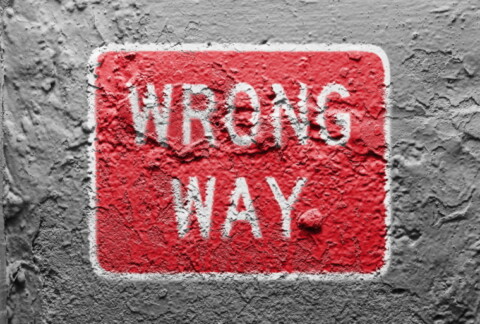Is negative SEO really a thing?
Of course, you know about SEO (Search Engine Optimization) and how various SEO activities can help a website score better in the search results, but what about negative SEO? Well, negative SEO is the complete opposite of the good work SEO does; it’s an unethical practice aimed at sabotaging a competitor’s website’s search engine rankings. The scary thing about it is that people out there are actively doing it, in fact, there are companies across the globe offering negative SEO services! If life wasn’t hard enough…
Yes, negative SEO is real and can have a negative impact on absolutely anyone’s website – including yours! In this article we look at 3 typical tactics that people use in negative SEO, the effects on websites, and what can be done to combat/remedy those effects…
Link spamming
Creating high quality and relevant links back to a website is great SEO practice. Now turn that on its head and you have the concept of link spamming. Using this negative SEO tactic, a website or individual creates a large number of low-quality or irrelevant backlinks to a target website. The goal of this is to manipulate search engine rankings, as search engines mark down websites that have multiple bad links. Link spammers create multitudes of awful links from places like link farms, spammy directories, forum profiles and blog comments.
What can you do?
Use Google Analytics or another SEO tool such as Moz to regularly keep an eye on inbound links to your website. It is quite easy to identify spammy links, and some SEO tools also provide a ‘spam score’ too which is really helpful. Make a note of the main domain name of each spammy link, then request Google to ignore them by uploading the information using their ‘disavow tool’ in Webmaster Tools.
Duplicating content
Google frowns heavily on duplicate content and can score down any website displaying it. That’s why duplicating content is a big tactic used in negative SEO. It is SO easy for someone to sneakily dip into someone else’s website, copy text content, and then place it on other random websites around the globe! The big problem here is that website owners do not know their content has been stolen until later when their rankings start to drop.
What can you do?
Use an online plagiarism checker like Copyscape, where you pop in your website’s sitemap to then see a list of which websites are using your content. You can then contact those website owners and demand removal of your content and even file a complaint with Google. Check out another of our articles titled ‘So your website content got copied’ that will provide you with more details on what to do.
Fake Reviews
Having good online reviews is essential for any type of business – it’s one of the main ways to gain a good reputation and certainly something potential customers will judge you. Negative SEO tactics can include creating poor customer reviews against a business or website. The aim – to drive potential customers away from you to other websites. For any business this can be completely disastrous as it has an instant detrimental impact on your customer leads or sales.
What can you do?
What happens when you have been left a negative review that suspiciously looks fake? Don’t panic! Log in to your Google My Business account where you will be able to flag up any review that you believe is fake. Find out more on how to do this using this Google Support Page
Be Vigilant
As website owners we can sometimes get complacent with our own websites and how we are performing with search engines. The tell-tale signs that something is wrong include a noticeable drop in customer enquiries and a drop in the search results rankings. If this is happening to you, then there’s a high chance that someone else is trying to sabotage you with the tactics mentioned above.
It’s not all gloom and despair! There are tools there, as mentioned above, for you to keep a close eye on your website to counteract any foul play. These tools should be used regularly, as negative SEO tactics against you can be ongoing. You’ve worked hard to create your online presence, so be vigilant and keep it protected!


